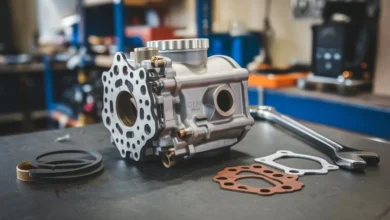The Environmental Benefits of Switching to Electric Bicycles

Electric bicycles, or e-bikes, are becoming a popular mode of transportation. As more people focus on sustainability, switching to electric bicycles offers clear environmental benefits. These benefits range from reducing emissions to conserving energy.
In this article, we will explore how choosing an electric bicycle can make a positive impact on the environment.
Reducing Greenhouse Gas Emissions
One of the most significant advantages of using electric bicycles is the reduction in greenhouse gas emissions. Traditional vehicles, especially cars, release large amounts of carbon dioxide into the atmosphere.
In contrast, electric bicycles produce zero direct emissions. By replacing car trips with e-bike rides, you can significantly reduce your carbon footprint.
Electric Bicycles vs. Cars
Using an electric bicycle instead of a car for short trips can have a noticeable effect on the environment. Cars, especially in urban areas, contribute heavily to air pollution.
Electric bicycles, on the other hand, use minimal electricity and produce no exhaust. This simple switch can help cities reduce their overall air pollution levels.
Energy Efficiency of Electric Bicycles
Electric bicycles are much more energy-efficient than cars. They require far less energy to operate because they use small electric motors and can be powered by human pedaling. This efficiency makes e-bikes a greener transportation option.
The electricity used to charge an e-bike’s battery is minimal compared to the fuel consumption of a car.
Lower Energy Consumption
E-bikes require less energy to cover the same distance as cars, making them an eco-friendly choice. While cars consume fossil fuels, which are non-renewable resources, electric bicycles can be charged using renewable energy sources such as solar or wind power. This makes e-bikes a cleaner option for those looking to reduce their energy consumption.
Reducing Traffic Congestion
Traffic congestion is another issue that contributes to pollution. With more vehicles on the road, the demand for energy increases, and emissions grow. Electric bicycles take up much less space than cars, which can help ease traffic in crowded urban areas.
By using an e-bike for your daily commute, you can contribute to reducing the number of cars on the road and, therefore, lower the overall emissions produced by traffic.
Promoting Cleaner Air
Switching to electric bicycles can also improve air quality. Traditional vehicles emit harmful pollutants such as nitrogen oxides and particulate matter, which negatively affect air quality and human health.
Since e-bikes produce no exhaust, they help reduce these pollutants. Cleaner air leads to a healthier environment and benefits everyone in urban and suburban areas.
Impact on Urban Environments
Electric bicycles are especially beneficial in cities. They not only help reduce emissions but also promote cleaner air in densely populated areas where pollution is often a significant issue. By choosing to ride an electric bicycle, individuals can play a part in making their cities greener and healthier.
Sustainable Urban Transportation
As cities become more focused on sustainability, electric bicycles can play a major role in promoting green transportation. Public transport systems may not always meet the needs of every commuter, and cars remain a source of pollution. Electric bicycles provide a sustainable solution by offering a cleaner alternative for urban travel.
Combining E-Bikes with Public Transport
Many commuters are now combining electric bicycles with public transportation. This reduces the need for private cars and lowers emissions. E-bikes are easy to store and can be used for the “last mile” of a commute, making them a versatile solution for those seeking greener transportation methods.
Conservation of Resources
Another environmental benefit of electric bicycles is the conservation of natural resources. Cars require significant amounts of raw materials, such as steel, aluminum, and plastic, for their production.
These materials come from mining and manufacturing processes that have a large environmental impact. Electric bicycles, on the other hand, are much smaller and use fewer resources in their production.
Sustainable Manufacturing
The smaller size and simpler components of electric bicycles reduce the need for resource-intensive manufacturing processes. By choosing an e-bike over a car, you contribute to less demand for raw materials and energy used in vehicle production, making electric bicycles a more sustainable choice.
Supporting a Healthier Planet
The environmental benefits of switching to electric bicycles extend beyond reducing pollution and conserving energy. By encouraging more people to use e-bikes, we can promote a lifestyle that focuses on sustainability. This shift can have long-term positive effects on the planet, including reduced dependence on fossil fuels and a healthier, cleaner environment.
Conclusion: Making the Switch to Electric Bicycles
Switching to an electric bicycle is a practical and effective way to reduce your environmental impact. From lowering greenhouse gas emissions to improving air quality and conserving energy, the benefits of e-bikes are clear. If you’re looking for a greener way to travel, consider an electric bicycle.
Companies like Urtopia offer a range of e-bikes that make it easier to adopt this eco-friendly mode of transportation. By making this switch, you can play a part in creating a cleaner, healthier planet.





